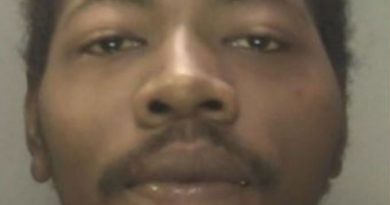Childhood sex abuse: Chinese survivor opens up to help others beat cultural stigma, shame, fear
She was sexually abused by her older cousin more than 30 years ago and kept the dark, horrible secret to herself for decades.
But in 2017 year Anne decided what happened to her simply was not right and she reported the abuse to police.
She has now decided to speak about her ordeal in a bid to help others and to shine a light on the insipid sexual abuse that goes on behind closed doors – particularly in the Asian community.
Anne – not her real name – is Chinese and for her and many others, sexual abuse is not disclosed, discussed or ever dealt with.
She wants that to change and bravely opened up to Herald senior journalist Anna Leask about her journey for justice.
Justice served – and a voice for a victim
In December last year her abuser was sentenced – finally – for what he did to her.
Her cousin is 24 years older than her and took advantage of her three decades ago when she was living with him and under his guardianship.
He was supposed to care for her – instead he subjected her to harrowing abuse.
It took Anne a long time to find the courage to speak up.
For all survivors of sexual abuse it is extremely hard to disclose to anyone what they have suffered.
For Anne, as a Chinese woman, it was even more excruciating.
The shame. The stigma. The embarrassment.
It was all intense and terrifying.
But as an adult she found a “higher purpose” and knew she had to come forward.
And she did.
Her abuser was eventually arrested for his offending all those years ago and pleaded guilty to five charges of indecent assault.
He was sentenced to five months’ community detention and ordered to pay reparation of $1000.
The Herald has agreed not to identify him to protect Anne.
She waived her own right to statutory suppression – automatically and permanently given to all victims of sexual offending – but later decided she did not want her name made public.
“I want to shine the light that sexual abuse happens in every ethnicity to help prevent and break the cycle,” she said.
“With better understanding about the dynamics of sexual abuse, progress can be made to help prevent this.
“I also want to empower other victims of sexual abuse to find their purpose, inner strength to encourage them to seek help and report it to the police.
“Sexual abuse happens in all ethnicities – Chinese, Indian, Greek, Pacific … you are not alone.”
Statistics show – shockingly – that one in three girls will be sexually abused before they turn 16.
In 90 per cent of cases the abuser will be someone the girl knows.
Sadly, only 10 out of 100 sex offences are reported to police; three out of that 10 make it to court and just one is likely to result in a conviction.
Speak up – survivor urges others to come forward
Anne hoped that by speaking out she could encourage others – across all cultures – to take action.
“Sexual abuse a silent journey not spoken about because of fear and shame,” she said.
“In small ethnic communities where migrants hold on to old Asian, patriarchy, hierarchy and social beliefs – where males are dominant, listened to and valued over females.
“Where principles like family name, obedience and traditions are valued above the individual.
“Where respecting elders is expected … seniors take care of juniors and juniors are loyal to seniors, where authority is not questioned.”
She said societal expectations within cultures to “be good”, put others first, not to question, to be polite, be feminine and submissive and obedient made it significantly harder for victims to speak up.
“And it suppresses victims’ voices,” said Anne.
She did not want the specifics of her abuse published but said her cousin groomed her, “twisting” Traditional Chinese medicine and putting fear and shame into her before he offended.
“He emotionally manipulated and coerced a naïve and vulnerable girl, sexually abusing her for over a year,” she explained.
She said the power imbalance and the high level of respect and trust the offender had in the family made her “freeze” – she was too scared to try and stop the man.
“I was left in a constant hyper alert state, the fear and shame from the sexual abuse caused huge stress and anxiety, a downward spiral to my health and low self-esteem,” Anne explained.
“It affected my studies. I tried to forget, suppressing the trauma.
“But the body never lies, the physical, mental, spiritual strain haunted me with sleepless nights, panic attacks, flashbacks, indigestion and heartburn affected meover the years.”
Confronting abuse – a harrowing journey
Anne tried to help herself – seeing doctors and therapists “constantly” to try and relieve her physical and emotional suffering.
She had almost reached “breaking point” when she finally sought psychological help.
It helped but it still took a number of years until she could confront her abuser.
“The perpetrator made an apology to the family but couldn’t say what for, meant he didn’t truly understand, making the apology meaningless,” said Anne.
She hoped he would reflect on what he had done and give a real apology but the matter was “swept under the carpet”.
Some of her family “re-victimised” her and “applied immense pressure” on her not to go to the police.
They feared the sex offender would go to jail.
They also feared that there would be gossip and “ongoing shame to the family name”.
“Sadly this is normal in sexual abuse cases,” said Anne.
But she was determined to hold her abuser accountable.
When she went to the police the officer who interviewed her said: “just because there is not enough evidence, doesn’t mean it didn’t happen”.
Fortunately during the police Investigation officers found physical evidence – in the form of the offender’s DNA left over 30 years ago.
That helped police to put him before the courts with a strong case that he could not deny.
But she did not want others to be put off if they could not do the same.
“Not all cases meet the threshold to go to court… especially in historical cases where evidence is limited,” she said.
You matter – a survivors message to others
Anne told the Herald that she found an “inner strength” when she disclosed her abuse to police.
She said the court process was a “long, difficult” journey – a “rollercoaster” – but felt she had honoured her younger self by going through it.
At the end she felt strong.
“It’s not what happens to you that defines you but what you make of it,” she said.
“Asking for help doesn’t make you weak – this takes courage.
“Take back control of your life – report it to the police and whatever the outcome, you know in your heart you have lived with your integrity and truth.”
Anne said it was important for victims to put themselves first.
“You matter,” she said.
“Be kind to yourself, seek self-care -therapy, exercise, meditate…You are not alone, there are many supports along the way.”
Anne said she had forgiven her abuser.
“Not because he admitted guilt, served his sentence or apologised – but to gain inner peace for myself, to carry on with her life, as a survivor, not a victim,” she said proudly.
“A Chinese proverb: if you don’t want anyone to find out, don’t do it.”
SEXUAL HARM – DO YOU NEED HELP?
If it’s an emergency and you feel that you or someone else is at risk, call 111.
If you’ve ever experienced sexual assault or abuse and need to talk to someone contact the Safe to Talk confidential crisis helpline on:
• Text 4334 and they will respond
• Email [email protected]
• Visit https://safetotalk.nz/contact-us/ for an online chat
Alternatively contact your local police station – click here for a list.
If you have been abused, remember it’s not your fault.
Source: Read Full Article

/cloudfront-ap-southeast-2.images.arcpublishing.com/nzme/TRRHVAB2HLPZDA3HNXVWO6TWZU.jpg)
/cloudfront-ap-southeast-2.images.arcpublishing.com/nzme/K5G3PZFNYJZCSR7OO4JVKKNTPY.jpg)
/cloudfront-ap-southeast-2.images.arcpublishing.com/nzme/X2IFB5ATYIQ2EXGBKJ37OR2Q2A.jpg)
/cloudfront-ap-southeast-2.images.arcpublishing.com/nzme/FM6TCIA7256RH7DL76LGAG3NIE.jpg)
/cloudfront-ap-southeast-2.images.arcpublishing.com/nzme/7H665TXIGXN2HIHZ4HIWI4GQW4.jpg)


